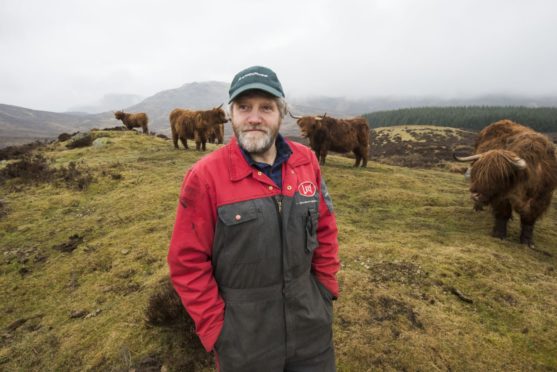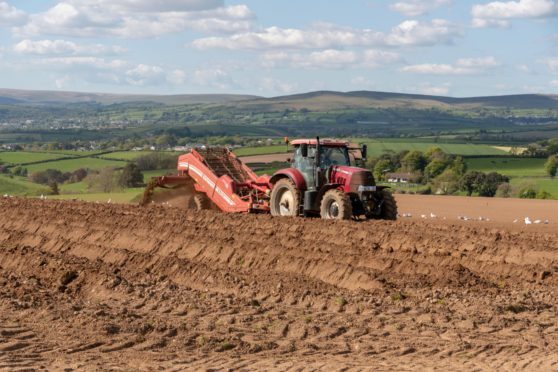The chief of Scotland’s farming union has called on the UK Government to make simplifying trade with the EU a priority.
NFU Scotland president Martin Kennedy, who farms near Aberfeldy, has written to Lord Frost – the Minister of State in the Cabinet Office leading on post-Brexit strategy – to raise his concerns.
Mr Kennedy said post-Brexit trading requirements, including paperwork and physical inspections of agri-food products heading to Europe from the UK, had resulted in friction, delay, losses and extra costs for food and farming businesses.
He called on Lord Frost to make simplification of sanitary and phytosanitary (SPS) border controls a priority, as these require lengthy specialist paperwork and frequent physical inspections on products of animal or plant origin.
“Whether it is seed potatoes, plants or livestock, many of the export difficulties being experienced stem from the compliance needs associated with export health certificates and customs declarations,” said Mr Kennedy.
“The extra cost and time levied by these compliance requirements present a new, and possibly permanent, hindrance to trade unless rectified. Immediate priority must be given to streamlining these forms and processes through digitisation as an absolute minimum.”
Mr Kennedy also called on the UK Government and European Commission to establish agreements on equivalence and mutual recognition of each other’s rules to ease the flow of goods between the UK and Europe.
“Only when either partner makes a change to those SPS rules should it be necessary to require an export health certificate or customs declaration,” added Mr Kennedy.
The NFUS chief also used his letter to Lord Frost to air concerns over the ongoing problems surrounding seed potato exports to Europe.
Trade for UK seed tatties to Europe was suspended on January 1 as a result of the Brexit trade agreement not including third-country equivalence for seed potatoes – this is the mechanism whereby the European Commission decides whether a non-EU country’s regulatory, supervisory and enforcement regime is equivalent to its own.
In January, the UK Government applied to the European Commission to secure the equivalence status but the application was rejected, and potato growers and farming bodies are now calling for the UK Government to ban the import of European seed potatoes unless reciprocal trade can be agreed.
Mr Kennedy said: “The current derogation that allows EU seed potatoes to come into the UK until the end of June 2021 has, in NFU Scotland’s view, been unhelpful in encouraging an agreement on equivalence.
“This asymmetrical arrangement is putting UK producers at a disadvantage and NFU Scotland is advocating strongly for this not to be extended.”
He said seed potato growers needed “immediate clarity” on whether they are likely to regain access to the European market, which is worth an estimated £13.5 million a year.
“Scottish seed potato growers need to decide now if they are to plant the varieties wanted in Europe or instead plant the processing varieties that growers in England will need to replace those that have normally been sourced on the continent,” added Mr Kennedy.
A UK Government spokeswoman said: “We were always clear that there would be new processes outside the EU, and overall businesses have been adjusting well to the new rules and trading effectively.
“We continue to support their transition to new trading arrangements – including increasing our vet capacity to certify exports, making millions of pounds available to help small businesses and regularly engaging with industries across Scotland to understand the challenges they face – and we will continue to call on the EU to take a pragmatic approach on the issue of seed potato equivalence.”
She added: “We are also focused on supporting industries to take advantage of the opportunities that come from our new relationship with the EU and partners around the world.”

